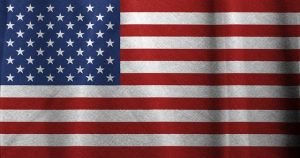By Kat Leslie
Three years have passed since Russia launched its full-scale invasion of Ukraine. Three years of war, – a war that has tested the limits of international diplomacy, strained alliances, and reshaped the global security landscape. Three years of death, destruction and defiance. Ukraine, against all odds, has withstood the onslaught of a much larger adversary, proving its resilience and unwavering determination to remain sovereign. But as political rhetoric shifts in the United States and Europe, uncertainty looms over the future of Western support.
For this special report, we(WVD) sat down with Stephen Kitar(SK), a Ukrainian-born Warwick resident and Russian military insider with extensive ties to Ukraine, firsthand knowledge of both Ukraine and Russia, to cut through the noise and lay out the brutal reality of this war.
Interview
WVD: You have given numerous interviews to various media outlets and are considered an expert on the Ukraine-Russia conflict. How do you define your expertise?
SK: True. However, I wouldn’t go as far as to claim the title of an expert, at least not in the academic sense. My insights are based on firsthand experience, deep familiarity with the histories, traditions, and national characters of both Ukraine and Russia, as well as my military background. This experience provided me with a clear perspective on Russia’s war potential and limitations. I do not need a textbook to tell me how Russia fights and what it’s capable of. I’ve seen it firsthand.
WVD: You were born in Ukraine, correct?
SK: Yes, I was born and raised in Western Ukraine. Later in life, I either lived, worked, or served in both Ukraine and Russia—at a time when both were part of the Soviet Union.
During my service in a military unit of strategic designation—currently evolved into the Space Forces of the Aerospace Branch of the Russian Military—I held the highest level of security clearance. This gave me an insider’s understanding of military operations, command structures, and strategic planning within the Russian Armed Forces.
Being fluent in both languages allows me to assess real-time developments without the distortion of translations. I can recognize subtleties that are often overlooked by Western media, and I understand the motivations and tactics of both sides from an insider’s perspective.
WVD: In light of recent statements by President Trump—his claim that Zelensky is a “dictator” with only 4% approval, his exaggeration of U.S. aid to Ukraine, and the speedy development of U.S.-Russia relations—what is your response?
SK: Every aspect of those statements is false. All of it. Zelensky’s approval rating is over 60%, not 4%. The amount of aid provided to Ukraine—$350 billion as claimed by Trump—is inflated by a factor of four. More importantly, it was Russia, not Ukraine, that initiated this war. No amount of rhetorical gymnastics can change that reality. Anyone with internet connection and access to credible information can fact check it in seconds.
WVD: What do you make of such blatant falsification of facts?
SK: For everyone’s sake, sanity and piece of mind, I would like to believe President Trump does understand the situation. But in this case twisting such widely known facts, and distorted perception of the events could have been intended by design.
A “tactical ignorance”, if you will – a deliberate move meant to confuse, distract, or gain leverage in negotiations. It’s a common strategy in a high stakes bluff, diplomacy, military planning, card games, or sometimes even business dealings, where one tries to gain an upper hand by getting past the opponent’s guard through lull attention, or false pretence or statements. But this is not a business transaction—it’s a war. Playing politics with the lives of millions is reckless.
WVD: There’s a danger in sending mixed signals, don’t you agree?
SK: Certainly. It is not what was said, but rather who had said it. And when the President of America says it, – the whole world is listening. And right now it is listening in shock.
That said, you must remember that the president in question is Donald Trump, and shock is exactly the reaction he wants. That might put things into perspective. His approach is largely about optics. Trump is known for an unorthodox political style that relies heavily on informational pressure. This is how he operates and how he views the process—through a lens of dominance and overwhelming pressure. By throwing out misleading statements, he forces his opponents into a defensive position, sometimes extracting concessions before real negotiations even begin. These are distinct features of his political strategy.
However, such an aggressive approach and the use of informational pressure should not be mistaken for meaningful action. Diplomatic relations between countries involve many less-public channels that follow specific protocols, processes, and guidelines.
WVD: Trump’s remarks have drawn backlash, with his disapproval rating increasing by 10 points in just the past month. What is your take on the reaction?
SK: We should never underestimate the danger of false narratives or false information. Just ask Putin. Three years ago, Putin’s “3+10 formula”—capture Kyiv in three days and suppress all resistance in ten—was based on false intelligence that Russian forces would be welcomed as liberators. Instead, Ukrainians fought back with everything they had, and now, Moscow is scrambling for troops and resources. Today even the Kremlin admits its failure, while looking for an exit strategy.
WVD: What is the biggest misconception about this war?
SK: The biggest misconception is that this is about saving Ukraine. In reality, it’s about NOT saving Russia.
For decades, Russia was viewed as the West’s greatest military threat. The nation that forced an arms race, justified trillions in defense spending, and kept NATO on edge. Ukraine has shattered that illusion. Three years in, Putin has failed to achieve a single one of his strategic objectives, and Ukraine has exposed the cracks in Russia’s war machine. Russia’s best-trained forces have been decimated, and what remains is an army held together by convicts, mercenaries, and forced conscripts.
While many focus on Ukraine’s survival, the true existential crisis belongs to Russia. Putin has burned through his most capable soldiers. Now, he is pulling people from prisons, promising them freedom for service, forcing labor migrants into military contracts, and even importing North Korean troops. Meanwhile, Ukraine hasn’t even tapped into its full military reserves. The draft age is still set at 25.
The contrast is staggering. The war in Ukraine has made it painfully clear that Russia is not the military superpower it claimed to be. Russia is bleeding out, its so-called invincible army crumbling under the weight of its own delusions.
WVD: With Russia’s losses mounting, is there any sign that Putin might negotiate?
SK: Not sincerely. Putin only negotiates when he’s weak, and even then, it’s just a stall tactic. He’ll agree to a phony ceasefire, regroup, and attack again. It’s what Russia always does.
There’s only one way this ends—Russia is either forced out of Ukraine completely, or it drags itself into complete military exhaustion. Either way, Ukraine isn’t backing down, and Putin knows it.

WVD: Can Europe ensure Ukraine’s security without the United States?
SK: Not at this stage. The U.S. still provides 60% of Ukraine’s military aid and about 50% of its financial support. Europe is stepping up, but their military-industrial production is only now beginning to ramp up. It will take years before Europe can fully compensate for a loss of U.S. support.
However, Trump’s unpredictability has accelerated European defense initiatives. There are now serious discussions about creating an independent European army, reducing reliance on NATO, and establishing a unified European military command.
WVD: What role does NATO play in Ukraine’s future?
SK: NATO membership is no longer a hypothetical—it’s a matter of time. Ukraine has proven its strategic value, and behind closed doors, discussions are advancing. Europe and the U.S. know that a strong, battle-hardened Ukraine is the best defense against future Russian aggression. Who else in Europe has over a million battle-hardened troops ready to fight? President Trump understands that keeping Ukraine out isn’t just bad policy—it’s bad business.
WVD: What will it take for Ukraine to win?
SK: Two things: a steady supply of weapons and smart mobilization.
Russia is already at its breaking point. They’ve thrown everything they had at Ukraine and still couldn’t take a single major city in three years. If Ukraine keeps getting the firepower it needs, it will prevail. Military victories require consistent ammunition, weaponry, and financial backing. Russia is already depleting its manpower, scraping the bottom of the barrel. Ukraine, however, has still untapped reserves, fighting spirit and unwavering dedication to win.
If Ukraine receives the necessary military and economic support, it will outlast Russia.
WVD: What message should the world take from Ukraine’s fight?
SK: That democracies cannot afford to be complacent. Stop treating this war like some faraway problem. This is the frontline of the battle between democracy and tyranny. If Ukraine falls, the world is next. China is watching. Iran is watching. Dictators everywhere are taking notes. If Putin gets away with this, every other rogue nation will start redrawing borders with force. The only thing stopping that nightmare? Ukraine’s resistance.
Ukraine is proving that freedom is never guaranteed—it must be defended. If Ukraine prevails, it will send an unmistakable message to every authoritarian regime: aggression will not go unpunished.

WVD: Mr. Kitar, thank you for today’s conversation. We appreciate you providing a sobering analysis of where the war stands today, the impact of recent events, and the dangerous misconceptions shaping global discourse on Ukraine.
SK: Thank you for having me, and for your coverage. I know how grateful the Ukrainian people are for our nation’s support and how much it means to them. Three years into the war, Ukraine stands as a testament to resilience, defiance, and the cost of freedom.
While Ukraine continues to fight, we must all decide—will we stand by, or will we continue to ensure that Ukraine’s sacrifice was not in vain?
Glory to Ukraine!






